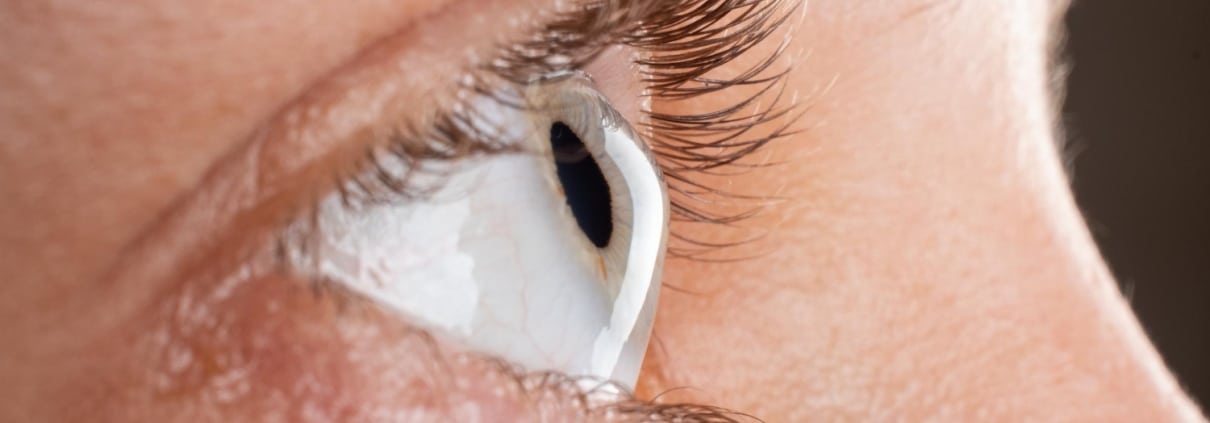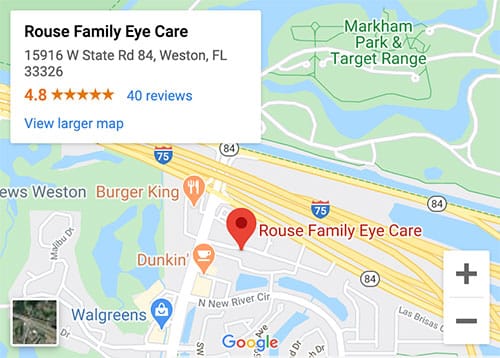What Is Keratoconus and Its Symptoms?
Do you have blurry or shortsighted vision? If so, you might need to find an optometrist in Weston, FL to give you a proper diagnosis because it might be keratoconus. What is keratoconus, you ask? Let’s find out.
What Is Keratoconus?
Keratoconus is when the clear tissue that’s on the front of your cornea (eye) becomes dome-shaped and bulges outward. This causes your eyesight to become blurry, see halos, be shortsighted, and sensitive to light and glare. The cause of keratoconus is unknown.
How Do You Treat Keratoconus?
Keratoconus can be effectively corrected with eyeglasses or with soft contact lenses, rigid gas permeable contact lenses, hybrid contact lenses, or scleral lenses. Your optometrist will be able to recommend which product best suits your particular situation if you need keratoconus services in Weston, FL.
There are four stages of keratoconus. Here are those four stages.
The Four Stages of Keratoconus
1. Early Keratoconus
In the early stages of keratoconus, you probably won’t notice many symptoms. An optometrist will generally recommend eyeglasses or contact lenses to help restore your vision.
2. Moderate Keratoconus
At this stage, your cornea distortion will increase, making the disease more obvious. Rigid gas-permeable contact lenses work wonderfully for neutralizing about 90% of your vision. Gas permeable lenses also work for other vision issues such as myopia, hyperopia, and astigmatism.
3. Advanced Keratoconus
When your keratoconus progresses to an advanced stage, you will experience some scaring of your cornea. Additionally, at this point, the corneal distortion you experience is substantial. Your optometrist will usually change your rigid gas-permeable lenses to ones with steeper interior curvatures.
4. Severe Keratoconus
This is the final stage of keratoconus. At this point, you will experience significant corneal distortion because there is much more corneal thinning and scarring. Unfortunately, when you get to the advanced stage of keratoconus, you probably won’t be able to tolerate wearing contact lenses of any kind. If your keratoconus gets to an advanced stage, your optometrist will probably refer you to a corneal surgeon. A corneal surgeon will examine your eyes to see if you might be a candidate for a corneal transplant.
Does Keratoconus Lead to Blindness?
Keratoconus does not usually lead to blindness. However, if your keratoconus becomes severe enough, you might experience low vision or lose your vision enough to be considered legally blind.
Can You Stop the Progression of Keratoconus?
The early stages of keratoconus can be easily treated with eyeglasses or contact lenses. However, if your keratoconus progresses into late childhood and early adulthood, a corneal transplant might be needed to restore your vision.
Does Screen Time Worsen Keratoconus?
There is no evidence that using a computer or other digital devices will cause your keratoconus to worsen. However, extended screen time sometimes results in having dry eyes.
If you need an optometrist in Weston, FL, please Contact Rouse Family Eyecare today. We offer full-service optometry services for you and your family.





Leave a Reply
Want to join the discussion?Feel free to contribute!